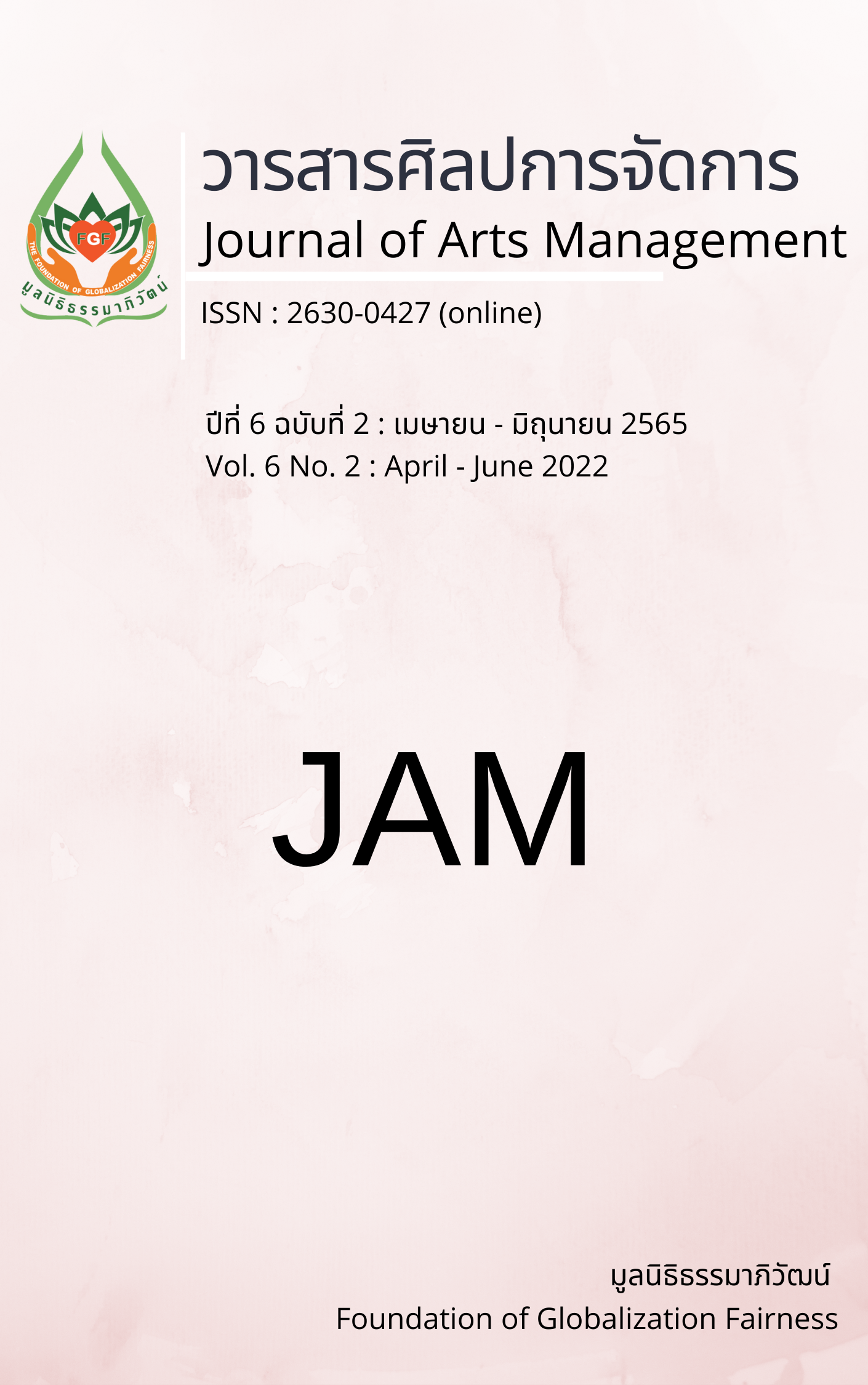The Development of Guideline on Social Impact Management in Community from Hosting International Sport Events
Main Article Content
Abstract
This article aimed to 1) study social impacts in the community from hosting international sporting events; 2) compare the difference between the positive and negative social impacts classified by gender, age, and occupation; and 3) develop the guideline on social impact management. This research was a mixed method research employing 1) the questionnaire with a reliability value at 0.913 for quantitative research. The sample consisted of 480 residents in 8 randomly selected districts in Buriram province and used stratified random sampling. And 2) Semi-Structured Interviews for qualitative research. The data were analyzed by using descriptive and inferential statistics for the questionnaire and content analysis for the interview.
The research results were found: 1) the positive social impact was at a high level, with a mean at 3.95, and the negative social impact was at a medium level, with a mean at 2.69. 2) The residents with different gender and age did not had statistically significant difference of opinion in social impacts, however the residents with different occupation had statistically significant difference of opinion in social impacts at the .05 level. And 3) guideline on social impact management in community from hosting international sporting events found that representative of residents paid attention to improve the community bond and avoid rowdy or quarrel. Therefore, identifying evaluation and response impacts was imperative for creating support for hosting sports events.
Article Details

This work is licensed under a Creative Commons Attribution-NonCommercial-NoDerivatives 4.0 International License.
Views and opinions appearing in articles in the Journal of Arts of Management It is the responsibility of the author of the article. and does not constitute the view and responsibility of the editorial team I agree that the article is copyright of the Arts and Management Journal.
References
Ap, J. (1992). Residents' perceptions on tourism impacts. Annuals of Tourism Research, 19(4), 665-690.
Bull, C., & Lovell, J. (2007). The impact of hosting major sporting events on local residents: an analysis of the views and perceptions of canterbury residents in relation to the Tour de France 2007. Journal of Sport & Tourism, 12(3-4), 229-248.
Fredline, E. (2005). Host and guest relations and sport tourism. Sport in Society, 8(2), 263-279.
Gursoy, D., & Kendall, K. W. (2006). Hosting mega events: Modeling Locals’ Support. Annals of Tourism Research, 33(3), 603-623.
Hinch, T., & Higham, J. (2005). Sport, tourism and authenticity. European Sport Management Quarterly, 5(3), 243-256.
Hritz, N., & Ross, C. (2010). The Perceived Impacts of Sport Tourism: An Urban Host Community Perspective. Journal of Sport Management, 24, 119-138.
Kanlaya, V. (2005). Statistics for research. Chulalongkorn University.
Kim, K., & Uysal, M. (2003). Perceived socio-economic impacts of festivals and events among organizers. Journal of Hospitality & Leisure Marketing, 10(3-4), 159-171.
Kim, W., Jun, H., Walker, M., & Drane, D. (2015). Evaluating the perceived social impacts of hosting large-scale sport tourism events: SCALE development and validation. Tourism Management, 48, 21-32.
Lorde, T., Greenidge, D., & Devonish, D. (2011). Local residents’ perceptions of the impacts of the ICC Cricket World Cup 2007 on Barbados: Comparisons of pre- and post-games. Tourism Management, 32, 349-356.
Perić, M. (2018). Estimating the perceived socio-economic impacts of hosting large-scale sport tourism events. Social Sciences, 7(10), 629-640.
Prayag, G., Hosany, S., Nunkoo, R., & Alders, T. (2013). London residents' support for the 2012 Olympic games: the mediating effect of overall attitude. Tourism Management, 3(6), 629-640.
Smith, A., & Stevenson, N. (2009). A review of tourism policy for the 2012 Olympics. Cultural Trends, 18(1), 97-102.
Zhou, Y., & Ap, J. (2009). Residents’ Perceptions towards the Impacts of the Beijing 2008 Olympic Games. Journal of Travel Research, 48(1), 78–91.


